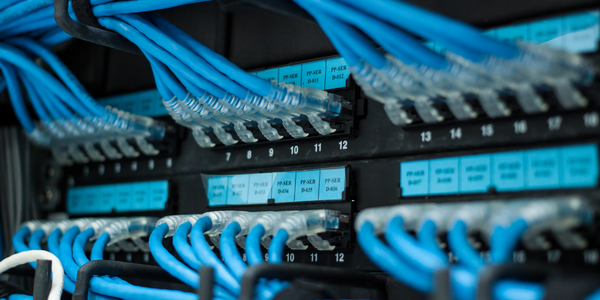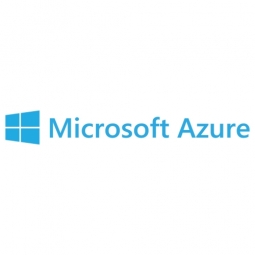Customer Company Size
Large Corporate
Region
- Asia
Product
- Microsoft Windows Server 2012 R2 (Hyper-V)
- Microsoft System Center 2012 R2
- Microsoft System Center Virtual Machine Manager
Tech Stack
- Hyper-V
- Windows Server 2012 R2
- System Center 2012 R2
Implementation Scale
- Enterprise-wide Deployment
Impact Metrics
- Cost Savings
- Productivity Improvements
- Customer Satisfaction
Technology Category
- Infrastructure as a Service (IaaS) - Private Cloud
- Infrastructure as a Service (IaaS) - Public Cloud
- Application Infrastructure & Middleware - API Integration & Management
Applicable Functions
- Business Operation
- Product Research & Development
Use Cases
- Remote Control
Services
- Cloud Planning, Design & Implementation Services
- System Integration
About The Customer
Nexon is a leading online gaming company based in South Korea, known for globally servicing popular games such as Kartrider, MapleStory, and Sudden Attack. With a workforce of approximately 4,500 employees, Nexon has established itself as a major player in the gaming industry. The company operates a diverse portfolio of games, catering to a wide range of gaming preferences and demographics. Nexon has been at the forefront of adopting new technologies to enhance its gaming infrastructure, ensuring that it can meet the evolving demands of the gaming market. The company's commitment to innovation and quality has made it a trusted name among gamers worldwide.
The Challenge
Nexon faced the challenge of managing a rapidly changing gaming environment where the lifecycle of games is decreasing, and the amount of data to be processed is increasing exponentially. The quality of mobile games is also steadily exceeding that of PC games, making it difficult to predict and appropriately manage system resources. The company needed a solution that could handle the complex technology requirements of game-related infrastructure, particularly in terms of capacity and response speeds. Initially, physical servers were used due to the limitations of virtual servers in delivering proper response speeds. However, with advancements in cloud technology, Nexon began exploring cloud solutions to address these challenges.
The Solution
Nexon adopted a private cloud solution using Hyper-V on Windows Server 2012 R2 to address its gaming infrastructure challenges. The private cloud allowed Nexon to process data more efficiently, reducing the need for physical servers and decreasing overall system costs. The company also implemented Microsoft System Center 2012 R2 for comprehensive management of its cloud system. This solution enabled Nexon to maintain the convenience of the cloud while significantly cutting costs. The private cloud was particularly beneficial for games requiring fast response speeds, such as MMORPGs and FPS games. By using Hyper-V duplex technology, Nexon was able to acquire more bandwidth and ensure that there was no difference in service quality compared to physical servers. The private cloud strategy also provided the flexibility to use public cloud services for mobile games and other applications where response speed was less critical.
Operational Impact
Quantitative Benefit

Case Study missing?
Start adding your own!
Register with your work email and create a new case study profile for your business.
Related Case Studies.

Case Study
Goldcorp: Internet of Things Enables the Mine of the Future
Goldcorp is committed to responsible mining practices and maintaining maximum safety for its workers. At the same time, the firm is constantly exploring ways to improve the efficiency of its operations, extend the life of its assets, and control costs. Goldcorp needed technology that can maximize production efficiency by tracking all mining operations, keep employees safe with remote operations and monitoring of hazardous work areas and control production costs through better asset and site management.

Case Study
Remote Monitoring and Control for a Windmill Generator
As concerns over global warming continue to grow, green technologies are becoming increasingly popular. Wind turbine companies provide an excellent alternative to burning fossil fuels by harnessing kinetic energy from the wind and converting it into electricity. A typical wind farm may include over 80 wind turbines so efficient and reliable networks to manage and control these installations are imperative. Each wind turbine includes a generator and a variety of serial components such as a water cooler, high voltage transformer, ultrasonic wind sensors, yaw gear, blade bearing, pitch cylinder, and hub controller. All of these components are controlled by a PLC and communicate with the ground host. Due to the total integration of these devices into an Ethernet network, one of our customers in the wind turbine industry needed a serial-to-Ethernet solution that can operate reliably for years without interruption.

Case Study
Using SNMP for a Ethernet-Based Home Automation System
A startup company was developing a product which provides service partners with an integrated e-services platform that allows customers to remotely monitor and control devices in their home or business. In order to complete their project, the startup needed a control system that could monitor and control the many different devices used by their potential customers, preferably with an open protocol for greater flexibility. SNMP was their first choice, as it is commonly used and well understood in the IT field. The next step was to choose an I/O server to connect to the sensors in a home automation system. System Requirements - Open Ethernet-based procotol - SNMP protocol for I/O control - Compact size to save space - Long-term support and services

Case Study
Boiler Control System for Plastic Manufacturing Applications
Factory automation applications must be equipped to handle and monitor the myriads of information from attached devices. For plastic manufacturing applications, the boiler control system plays a critical role by gathering and regulating information to ensure production is accurate and smooth. In this particular case, the customer combines eight subsystems that include power meters, water meters, alarm output, displays, and I/O status to be controlled by several intelligent controllers with Modbus RTU interface. The Modbus TCP protocol is used for this application due to the distance. System Requirements: • Modbus serial to Modbus TCP translation • Multiple slaves/masters support • Automatic Modbus TCP response time detection

Case Study
Keeping Your Home Safe with Aladdin Connect™
In a highly competitive market, Genie knew that security and safety was a concern for their customers. Teaming up with Exosite and Exosite’s IoT partners to leverage cutting-edge technology and meet consumer needs made perfect sense. Genie’s goal was to go to market quickly to keep pace with the quickly evolving home automation market. Research indicated that a smart device that could control multiple garage doors had market share viability and profit potential.








